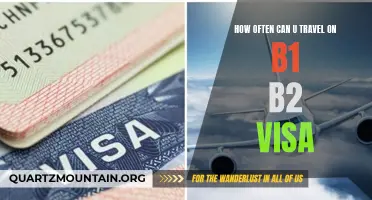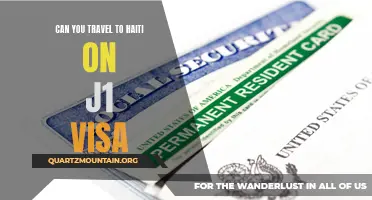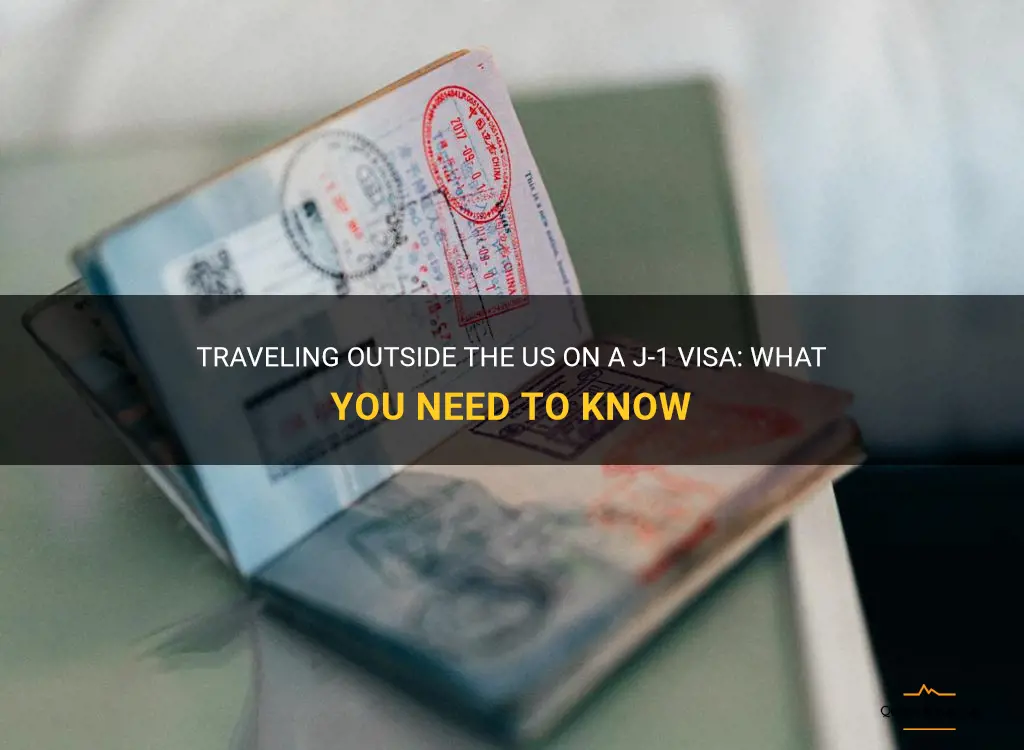
Are you an international student or professional looking to enhance your experience and broaden your horizons by traveling outside the US? If so, you may be eligible to do so on a J-1 visa. In this guide, we will explore what a J-1 visa is, how it works, and what you need to know before planning your international adventure. So, grab your passport and get ready for an exciting journey beyond the borders of the US!
| Characteristics | Values |
|---|---|
| Visa type | J-1 |
| Purpose of travel | Educational and cultural exchange |
| Eligibility criteria | Enrolled in a recognized exchange program |
| Duration of stay | Varies depending on program |
| Travel outside the US | Allowed with proper documentation |
| Authorization for travel | Valid DS-2019 form with travel signature |
| Travel during program | Limited vacation and travel allowed |
| Travel restrictions | None, except for certain countries |
| Documentation for re-entry | Valid passport, Visa, and DS-2019 form |
| Visa renewal | Can apply for extension or renewal |
| Employment eligibility | Limited to approved exchange program activities |
| Healthcare coverage | Required to have adequate health insurance |
| Application process | Through designated sponsoring organization |
| Visa application fee | Varies depending on country of residence |
| Language proficiency | Must have basic English language skills |
| Cultural exchange activities | Participation required during stay |
What You'll Learn
- Is it possible to travel outside of the United States while on a J-1 visa?
- What documentation or approval do I need to travel outside of the US on a J-1 visa?
- Will I need to apply for a new J-1 visa if I travel outside of the US while on a J-1 visa?
- Are there any restrictions or limitations on traveling outside of the US on a J-1 visa?
- What happens if I try to re-enter the US on a J-1 visa after traveling outside of the country?

Is it possible to travel outside of the United States while on a J-1 visa?

The J-1 visa is a non-immigrant visa issued to individuals who are participating in exchange visitor programs in the United States. These programs may include educational, cultural, or professional exchanges. While on a J-1 visa, individuals have the opportunity to travel outside of the United States, but there are certain requirements and restrictions that must be followed.
First and foremost, it is important to understand that the purpose of the J-1 visa is to promote international cultural exchange. Therefore, individuals on a J-1 visa are expected to spend the majority of their time in the United States and engage in activities related to their exchange program. However, there are opportunities for individuals to travel outside of the United States during their program.
To travel outside of the United States, individuals on a J-1 visa must have a valid travel document, such as a passport, and a valid J-1 visa stamp in their passport. It is also important to have a valid DS-2019 form, which is the official document that verifies an individual's participation in an exchange program. Without these documents, individuals may not be allowed to re-enter the United States.
Before traveling outside of the United States, individuals should inform their program sponsor of their travel plans and obtain permission. The program sponsor can provide guidance on the necessary steps to take before traveling and any additional documentation that may be required. It is also important to have a valid travel insurance policy that covers medical emergencies and repatriation.
When traveling outside of the United States, it is important to keep in mind the duration of the travel. Individuals should not be away from their program for an extended period of time without permission from their program sponsor. Additionally, individuals should be aware of any travel restrictions or advisories that may be in place for their destination country.
During their travel, individuals on a J-1 visa should maintain contact with their program sponsor and inform them of any changes or delays in their travel plans. It is also recommended to carry important documents, such as the DS-2019 form, passport, and visa, in a secure place to prevent loss or theft.
Upon returning to the United States, individuals on a J-1 visa must present their valid travel documents to the immigration officer at the port of entry. It is important to have all necessary documents readily available to facilitate a smooth re-entry into the country.
In conclusion, it is possible to travel outside of the United States while on a J-1 visa, but there are certain requirements and restrictions that must be followed. It is important to have the necessary travel documents, obtain permission from the program sponsor, and stay in contact with them during the travel. By following these guidelines, individuals can enjoy their travel experiences while still maintaining compliance with their J-1 visa requirements.
Exploring Romania with a Schengen Visa: All You Need to Know
You may want to see also

What documentation or approval do I need to travel outside of the US on a J-1 visa?
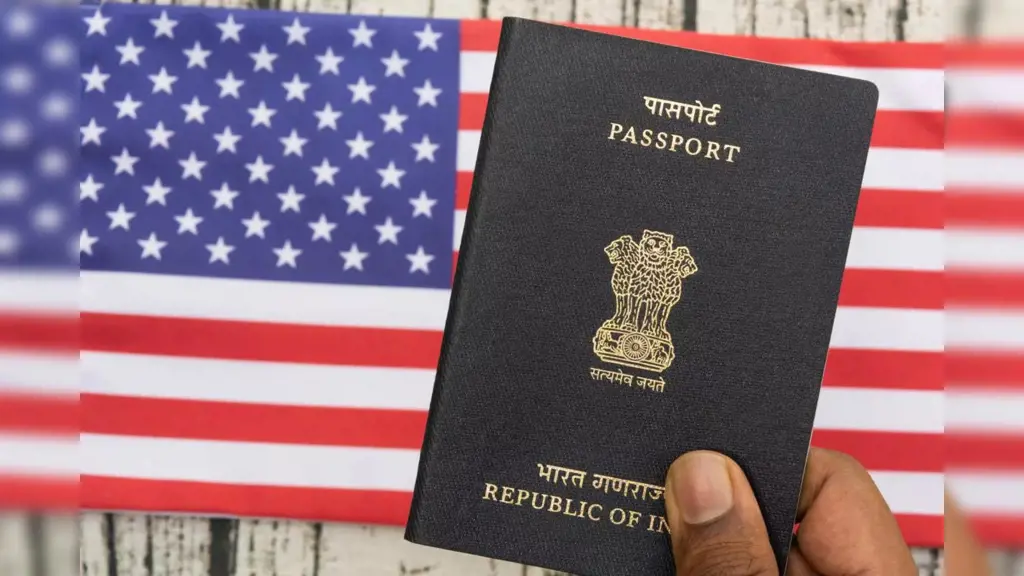
If you are participating in a J-1 visa program in the United States and you wish to travel outside of the country during your stay, there are certain documentation and approval requirements that you need to fulfill. Here is what you need to know:
- Valid Passport: First and foremost, you must have a valid passport to travel internationally. Make sure that your passport is not expired and has at least six months of validity remaining before you make any travel plans.
- Valid J-1 Visa: Your J-1 visa should be valid for the entire duration of your intended travel outside of the United States. If your J-1 visa has expired or is set to expire soon, you will need to apply for a new visa with the U.S. embassy or consulate in your home country before you can travel.
- DS-2019 Form: The DS-2019 form is a crucial document for J-1 visa holders. This form is issued by your program sponsor and it verifies your eligibility to participate in the J-1 program. You must ensure that your DS-2019 form is signed by your program sponsor before you leave the United States.
- Travel Validation: Before you leave the United States, it is recommended to have your DS-2019 form validated for travel by your program sponsor. This validation confirms that you are in good standing with your J-1 program and allows you to re-enter the United States after your trip. Contact your program sponsor to schedule a travel validation appointment.
- Additional Documents: Depending on your destination and circumstances, you may need additional documents for your travel. Examples of these documents include a valid visa for the country you are visiting, proof of financial support, travel insurance, and an invitation letter (if applicable). It is always wise to check the specific requirements of the country you plan to visit and consult with your program sponsor or designated responsible officer (RO) for guidance.
- Advanced Parole (if applicable): If you are subject to a two-year home residency requirement, you may need to obtain an Advanced Parole document from the U.S. Citizenship and Immigration Services (USCIS) before you can travel outside of the United States. This document allows you to re-enter the U.S. after your trip without jeopardizing your J-1 status. Consult with your program sponsor or RO to determine if you are subject to this requirement and if you need to apply for Advanced Parole.
- Program Sponsor Approval: It is essential to consult with your program sponsor or RO before making any travel plans. They will guide you through the necessary documentation and approval process and ensure that your travel plans align with the requirements of your J-1 program.
Remember, it is crucial to start the documentation and approval process in advance to avoid any travel disruptions. Give yourself enough time to gather all the necessary documents, make appointments if required, and receive the appropriate approvals. By following these steps and consulting with your program sponsor, you can travel outside of the United States on a J-1 visa with confidence and peace of mind.
Can I Travel to Portugal with a Schengen Visa?
You may want to see also

Will I need to apply for a new J-1 visa if I travel outside of the US while on a J-1 visa?
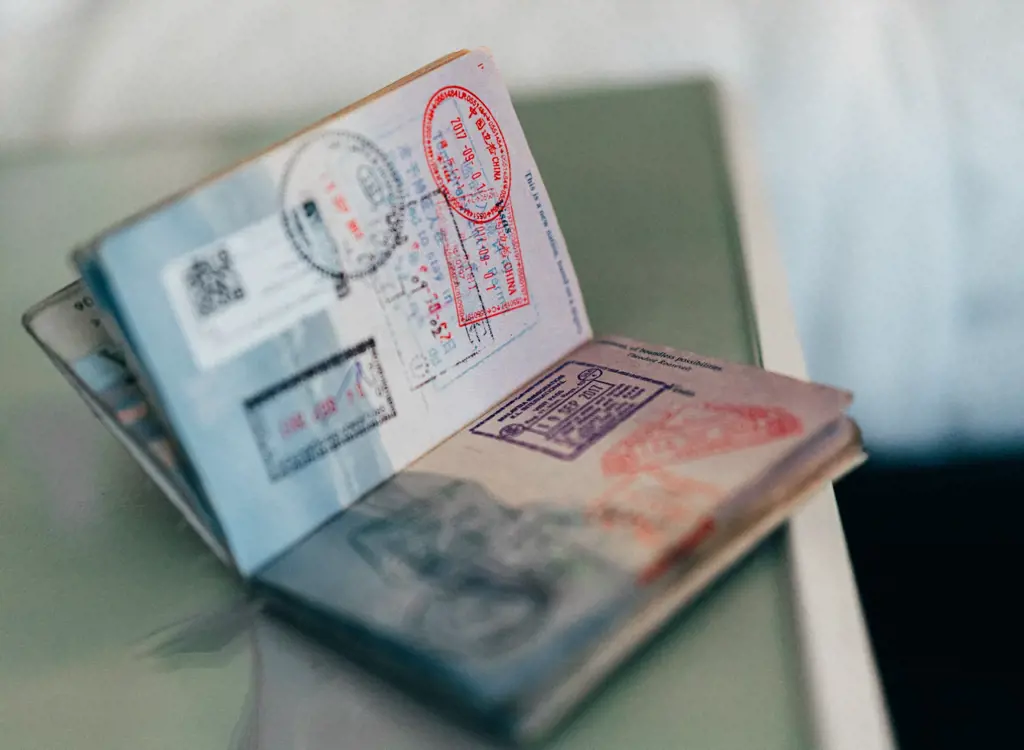
If you are on a J-1 visa and plan to travel outside of the United States, you may be wondering if you need to apply for a new visa upon your return. The answer depends on several factors, including the duration of your trip, the validity of your visa, and the type of program you are participating in.
In most cases, if your J-1 visa is still valid when you return to the United States, you will not need to apply for a new visa. However, there are a few exceptions to this rule. If your J-1 visa will expire while you are abroad, you will need to obtain a new visa before you can reenter the United States. Additionally, if you have changed your program sponsor or your program category, you may need to apply for a new J-1 visa.
Before traveling outside of the United States, it is important to check the expiration date on your visa. If your visa will expire while you are abroad, you should contact your program sponsor for guidance on how to obtain a new visa. It is recommended to initiate the visa application process well in advance of your planned travel dates to allow for any potential delays.
If your J-1 visa will still be valid when you return to the United States, you should ensure that you have the necessary supporting documents for reentry. These documents typically include your DS-2019 form, a valid passport, and your visa. It is also a good idea to carry proof of your program participation, such as a letter from your program sponsor or any relevant employment or research documentation.
Additionally, it is important to comply with the regulations and restrictions of your J-1 program while traveling outside of the United States. Some programs have specific requirements regarding travel, such as a maximum duration or restrictions on certain countries. It is crucial to familiarize yourself with these regulations to avoid any issues upon your return.
If you are unsure about the requirements or restrictions of your J-1 program, it is best to consult with your program sponsor or the responsible authority at your institution. They can provide you with the most accurate and up-to-date information regarding travel on your J-1 visa.
In conclusion, whether or not you need to apply for a new J-1 visa when traveling outside of the United States depends on the validity of your current visa, the duration of your trip, and any changes to your program. If your visa will expire while you are abroad or if you have made changes to your program, you will likely need to apply for a new visa before returning to the United States. It is important to check the requirements and regulations of your specific J-1 program and consult with your program sponsor or institution for guidance.
How to Travel to Morocco with a Schengen Visa
You may want to see also

Are there any restrictions or limitations on traveling outside of the US on a J-1 visa?

If you are planning to travel outside of the United States while on a J-1 visa, it is important to be aware of any restrictions or limitations that may apply. While the J-1 visa allows for travel, there are certain guidelines that must be followed to ensure compliance with immigration regulations.
Firstly, it is essential to have a valid passport and J-1 visa stamp in order to reenter the United States. Make sure that your passport is valid for at least six months beyond the date of your intended departure from the US. Additionally, it is crucial to have a valid Form DS-2019, which is the document issued by your program sponsor that allows you to participate in the J-1 exchange visitor program. Without these documents, you may encounter difficulties in reentering the United States.
Secondly, it is important to maintain the purpose of your J-1 visa while traveling outside of the United States. The J-1 visa is specifically granted for educational and cultural exchange programs. Therefore, any travel should be related to enhancing your skills or cultural understanding, or be approved by your program sponsor. It is important to consult with your program sponsor before making any international travel plans to ensure that your intended travel is in compliance with the regulations of your J-1 visa.
It is also crucial to consider the potential impact of traveling outside of the United States on your J-1 visa status. Extended periods of time spent outside of the United States may be considered as a break in your J-1 program, and could result in the termination of your visa status. Therefore, it is important to carefully plan your travel and ensure that it does not interfere with the objectives of your J-1 program.
In addition, it is important to comply with any applicable travel restrictions or limitations imposed by your program sponsor or the US government. For example, some J-1 visas may have a two-year home-country residence requirement, which means that you must return to your home country for at least two years before being eligible for certain immigration benefits, such as applying for a green card or H-1B visa. Violating this requirement could have serious consequences for your immigration status.
To summarize, while it is possible to travel outside of the United States on a J-1 visa, it is important to be aware of and comply with any restrictions or limitations that may apply. Make sure to have the necessary documents, maintain the purpose of your visa, plan your travel carefully, and comply with any applicable restrictions. By doing so, you can ensure a smooth and successful experience while traveling outside of the United States on a J-1 visa.
Traveling with an R-1 Visa: Can I Travel with an I-485 Pending?
You may want to see also

What happens if I try to re-enter the US on a J-1 visa after traveling outside of the country?
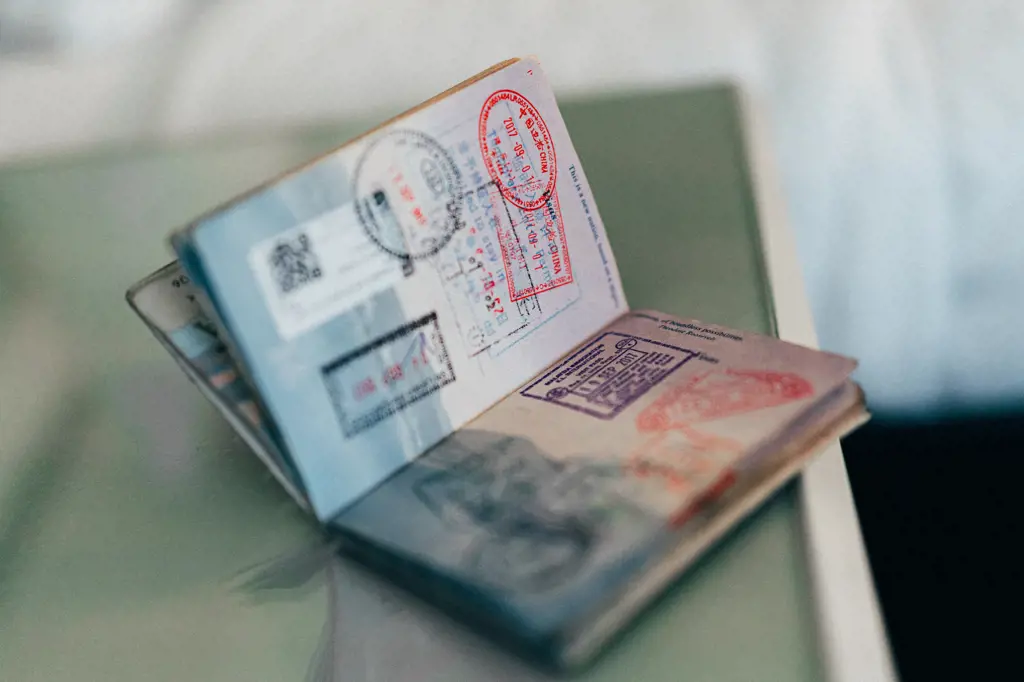
When it comes to re-entering the US on a J-1 visa after traveling outside of the country, there are certain things to consider. The J-1 visa is a non-immigrant visa category that allows individuals to participate in cultural exchange programs in the United States. These programs can include work and study opportunities, internships, and au pair positions, among others.
If you have a J-1 visa and you need to travel outside of the US, it is important to ensure that you have the necessary documentation and meet the requirements for re-entry. Here are a few steps to guide you through the process:
- Valid J-1 visa: Before leaving the US, make sure that your J-1 visa is still valid and will not expire during your absence. If your visa will expire or has already expired, you will need to contact the US Embassy or Consulate in your home country to renew it before you can re-enter the US.
- Valid DS-2019 form: The DS-2019 form is a document that is needed for J-1 visa holders. It should indicate that you are still in a valid exchange program and have the sponsorship of an approved organization. Make sure your DS-2019 form is up-to-date and valid for re-entry.
- Valid passport: Your passport should be valid for at least six months beyond your intended period of stay in the US. Check the expiration date of your passport and renew it if necessary before traveling.
- Travel signature on DS-2019 form: If you plan to travel outside of the US, you will need to obtain a travel signature on your DS-2019 form from your program sponsor before leaving. This signature indicates that you are eligible to re-enter the US after your travels.
- Valid J-1 visa stamp: When you are ready to re-enter the US, you will need to have a valid J-1 visa stamp in your passport. This stamp should match the information on your DS-2019 form. If your visa stamp has expired, you will need to renew it at the US Embassy or Consulate in your home country before returning to the US.
- Customs and Border Protection (CBP) inspection: Upon arrival in the US, you will need to go through the CBP inspection process. Be prepared to present your passport, DS-2019 form, and your J-1 visa stamp to the CBP officer. The officer will review your documents and determine whether you meet the requirements for entry into the US.
It is important to note that re-entry into the US is not guaranteed, even if you have a valid J-1 visa. The CBP officer has the authority to deny entry if they believe that you do not meet the requirements or if there are any concerns regarding your eligibility. It is always a good idea to carry any additional supporting documents, such as proof of sponsorship, proof of funding, or return tickets, to demonstrate your intention to comply with the terms of your J-1 visa.
In conclusion, if you have a J-1 visa and need to re-enter the US after traveling outside of the country, make sure you have a valid J-1 visa, an up-to-date DS-2019 form, a valid passport, and a travel signature on your DS-2019 form. Be prepared to go through the CBP inspection process and carry any additional supporting documents that may be required. Remember that re-entry is not guaranteed and it is important to comply with the terms of your J-1 visa at all times.
Exploring Greece: A Complete Guide to Traveling with a Cyprus Visa
You may want to see also
Frequently asked questions
Yes, you can travel outside the US while on a J-1 visa. However, there are certain requirements and restrictions to keep in mind. You must have a valid J-1 visa and an unexpired DS-2019 form. It is also important to ensure that your J-1 status remains valid throughout your travel period.
Yes, it is recommended to get a travel signature on your DS-2019 before traveling outside the US on a J-1 visa. The travel signature serves as proof that your J-1 status is valid and allows you to re-enter the US without any issues. It is advised to consult with your J-1 program sponsor to obtain the necessary travel signature.
There are no specific restrictions on the duration of your travel outside the US on a J-1 visa. However, it is important to note that excessive or prolonged absences may raise concerns about your commitment to the J-1 program. It is recommended to discuss your travel plans with your J-1 program sponsor to ensure compliance with the program requirements.
Traveling to countries on the US Department of State's travel advisory list may require additional precautions and considerations. It is important to review the travel advisory information before planning your trip. In some cases, your J-1 program sponsor may have specific restrictions or guidelines regarding travel to high-risk countries. It is advisable to consult with your program sponsor and follow their guidance.
To re-enter the US after traveling outside on a J-1 visa, you will typically need the following documents: a valid J-1 visa stamp in your passport, an unexpired DS-2019 form with a travel signature, a valid passport, and any other supporting documents related to your J-1 program. It is recommended to present these documents to the US Customs and Border Protection officer upon arrival to ensure a smooth re-entry into the US.




